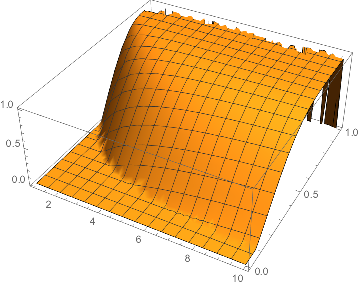Let,
$0<q<1$
$b>0$
With equation,
$(1+xb)^q(1-x)^{1-q}=1$
$0<x<1$
Is there a closed-form solution for $x$, given that $q(1+b)>1$? Note that the latter condition guarantees exactly one solution, and without it there may be no solution.
Alternatively, can we at least prove that $x<2((q(1+b)-1)/b)$
This equation comes up in the analysis of the Kelly Criterion, where $x$ would be the threshold fraction above which betting is asymptotically nonprofitable.

